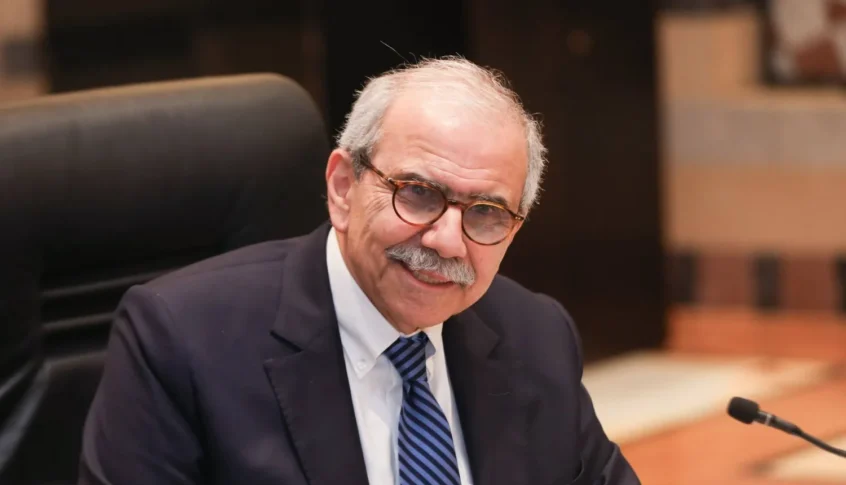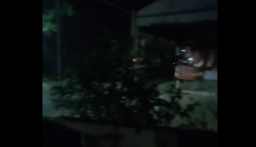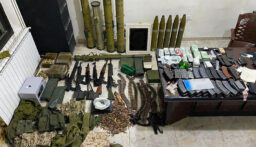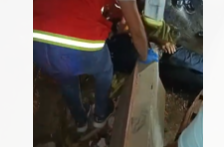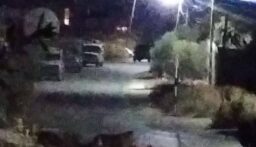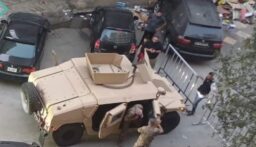أكد رئيس الحكومة نواف سلام من مؤتمر اعادة اعمار لبنان، ان الحكومة حققت إنجازات عدة أبرزها استعادة سيادة لبنان وضمان الأمن على كافة أراضيه فضلاً عن الإصلاحات الاقتصادية والمالية|.
وشدد سلام على ان الهجمات الإسرائيلية دمرّت البنى التحتيّة وأثّرت على حياة اللبنانيين والشعب صمد بثبات وإصرار.
وكشف سلام ان الحكومة تمكنت من نزع السلاح من أكثر من حوالي 500 موقع جنوب لبنان، معتبرا ان على الدولة ان يكون لديها السيطرة الكاملة على كل القوات المسلحة وتحقيق السلام وتطبيق القرارات الدولية بما فيها القرار 1701.
الكلمة كاملة للرئيس سلام:
It is my pleasure to address you today at this distinguished international conference, organized by the Chartered Institute of Arbitrators. Bringing together leading voices from government, business, academia, and law, this forum embodies the best of how the public and private can serve the most pressing priorities facing Lebanon today: to rebuild institutions and infrastructure, revive the economy, and unleash the full potential of the Lebanese people. It also stands as both an affirmation of Beirut’s ongoing revival, and Lebanon’s renewal, as a vibrant hub where diverse perspectives meet, ideas take shape, and the future is imagined.
We gather today at a pivotal moment for our country. Lebanon faces profound challenges—economic, political, and societal. Years of corruption, nepotism, sectarianism, and gross mismanagement have taken a heavy toll on Lebanese society.
A near-total collapse of Lebanon’s financial and banking sectors has been caused by poor fiscal governance, flawed monetary policies and—above all—a culture of impunity. Since 2019, the Lebanese pound has lost over 98% of its value, GDP has contracted by nearly 60%, and more than $80 billion in deposits have been stuck in the banking system—with ordinary citizens facing severe restrictions on withdrawing and transferring their money. Widespread unemployment, poverty and despair have drained much of Lebanon’s vital human capital, compelling many—not least young professionals—to emigrate in search of stability and opportunity.
And in August 2020, long-standing institutional dysfunction culminated in one of Lebanon’s darkest moments: the Beirut Port explosion. The blast claimed over two hundred lives, injured thousands, and devastated large parts of the capital—becoming a powerful symbol of the urgent need for accountability, justice, reform, and effective governance.
Further aggravating Lebanon’s humanitarian and economic crisis, Israel’s latest war has displaced entire communities, destroyed livelihoods, and severely damaged critical infrastructure. Recent assessments, including by the World Bank, estimate reconstruction costs at over $14 billion—placing even greater strain on an already fragile State.
Yet, just as remarkable—through crisis after crisis—has been the resilience of the Lebanese people. With courage and resolve, families have endured severe hardship, and businesses have found ways to survive amid economic collapse. This resilience is a powerful testament to the Lebanese spirit and entrepreneurial drive.
But the State cannot keep banking on this kind of resilience alone. The resourcefulness and determination of individuals cannot substitute for the responsibilities of a functioning State. No society can rely indefinitely on the strength of its people to compensate for institutional failure and political paralysis. It is time for Lebanon to transition from survival through personal resilience to progress through collective strength—through building a resilient State grounded in the rule of law, modern institutions, sustainable economic policies, and full respect for national sovereignty.
Building this resilient State—Lebanon 3.0—is the central mission of my government. Whereas Lebanon 1.0 was shaped by post-independence aspirations, and Lebanon 2.0 by the reconstruction efforts in the aftermath of the civil war, Lebanon 3.0 must be defined by the creation of a stable and lasting framework that inspires trust among citizens and investors, empowers all citizens to live with dignity and in security, to draw strength from our diversity, and to pursue economic opportunity.
I am proud to say that our new government is working hard—against all odds—to turn this vision of Lebanon 3.0 into reality. We have already made meaningful progress in laying the foundations of this new era, and the transformation is just beginning.
My government’s core mission has been to restore the sovereignty of the State across the entire Lebanese territory, while launching much needed administrative, economic and judicial reforms.
More specifically, the eight core pillars of my government’s vision for a new Lebanon include:
1. Restoring Lebanon’s sovereignty and ensuring security and stability across its territory. The Government’s Ministerial Statement makes it unequivocally clear: (i) the State must hold the exclusive monopoly over all arms in Lebanon; (ii) the State alone may decide on matters of war and peace; and (iii) Lebanon is committed to upholding all international resolutions, including Security Council Resolution 1701, and to implementing the cessation of hostilities understanding of November 2024. Moreover, we have taken and continue to take concrete actions to translate these policy positions into facts on the ground. We have dismantled over 500 military positions and arms depots south of the Litani River. We have also made substantial administrative and security enhancements at Beirut’s international airport and airport road—including combatting smuggling and arresting individuals who attacked UNIFIL forces on the airport road. And we have established joint committees with Syrian authorities to control borders, combat smuggling, and prepare for border delimitation. We are also working with the international community and Syrian authorities to ensure the safe and dignified return of Syrian refugees. At the same time, we are working tirelessly through diplomatic channels to ensure that Israel ceases its continued attacks and aggressions against our people and fully complete its withdrawal from Lebanon—including from the five positions it still illegally occupies, in clear violation of its commitments and international law. Restoring our country’s full sovereignty is paramount, as it ensures that every Lebanese can live in security, under one authority, and with full confidence in the State. It is also crucial for rebuilding the trust of the international community and encouraging investors and visitors to return to Lebanon. To put it simply: a stable, secure and sovereign Lebanon creates the political conditions for lasting investment and renewed economic opportunity.
2. Securing the independence of the judiciary. We have passed the Judicial Independence draft law in the Council of Ministers—a crucial milestone in starting to restore accountability and creating a climate conducive for investment and economic growth. It is also crucial in protecting our rights and freedoms, and in fighting corruption. An independent judiciary is also a cornerstone in establishing Beirut as a hub for international arbitration—a topic many of you will be exploring today. While arbitration is a private, party-driven process, it ultimately can only be as strong as the legal system to which it is attached. The courts at the arbitral seat retain a key supervisory role—not only in set-aside proceedings, but also in granting interim measures and resolving challenges to arbitrators. Parties choose arbitration for the promise of a fair, neutral, and independent forum—this expectation also guides their choice of arbitral seat. Judicial independence is thus essential to establishing Beirut as a credible and trusted center for arbitration. In other words, it is essential to redefining Lebanon’s image and role—from a place where conflicts arise to one where they are peacefully resolved.
3. Re-establishing trust and integrity in the banking and financial system. Whether through enacting the landmark Bank Secrecy Reform Law, passing the Bank Resolution draft law in the Council of Ministers, or now working towards an equitable law to address the distribution of financial losses—we are making real progress in achieving justice for depositors, combating the cash-based economy, and further integrating Lebanon into the global financial system. The Bank Secrecy Reform Law marks a decisive shift away from outdated practices and facilitates financial audits and investigations. The Banking Resolution Law will create a modern framework to manage banking crises, rooted in international best practices and the principle of creditor hierarchy. These structural reforms are driven by our own national interest—to restore stability and fairness to our economy and society. They also pave the way for deeper engagement with the International Monetary Fund, with which negotiations are moving forward constructively to reach an agreement.
4. Revitalizing key sectors of our economy and revamping public services and critical infrastructure. We have introduced transparent procedures and merit-based criteria for public appointments along with launching the process to establish independent regulatory bodies to breathe new life into vital economic sectors—including the electricity, oil and gas, aviation, and telecom sectors. Lebanon has tremendous under-tapped potential as a logistics hub—its ports are some of the oldest and most experienced in the region, but they have been held back by mismanagement and corruption for far too long. This is why, in addition to reestablishing the State’s control over Beirut’s international airport and its access road, we are advancing plans to revamp and launch a second international airport in Qoleiat within a year. This second airport could play a strategic role in facilitating cargo movement and affordable travel. Developing seaport infrastructure is another priority, including the Tripoli seaport which holds significant potential as a gateway for Syria’s reconstruction. Internally, we are developing a comprehensive plan to enhance public transportation—with the introduction of new lines and buses—as well as to upgrade road networks throughout the country. Improving the coverage and reliability of telecommunication and electricity services is another main area of focus. We will also be rolling out a “One Stop Shop” initiative to improve ease of doing business in Lebanon, as well as implementing a national strategy to support and promote exports. Together, these projects and initiatives are poised to generate widespread economic impact and positive externalities—stimulating job creation, boosting productivity, and restoring investor confidence in Lebanon’s long-term potential.
5. Modernizing governance through digital transformation. Lebanon’s challenge today is not only to recover from lost decades of stagnation and paralysis—but also to propel itself into the future. Having long lagged behind in digital infrastructure, we now have the opportunity—and the imperative—to leapfrog into a new era of governance shaped by Artificial Intelligence. We are not simply aiming to catch up but are laying the groundwork of a modern tech-enabled state, equipped for the 21st century. Our government plans to launch a National Digital ID System, to develop a unified Government Super App, to digitize public records, to introduce e-court platforms, and to pilot Artificial Intelligence tools across Ministries. These initiatives are not merely about convenience—they are also about rebuilding trust in the State by making it more efficient, transparent, and accessible. To help drive Lebanon’s digital transformation, we are going to soon establish a whole new Ministry dedicated to Information Technology and Artificial Intelligence.
6. Reclaiming public spaces and the common good. We are committed to restoring what belongs to the people and revitalizing Lebanon’s shared spaces. On the environmental front, we have taken decisive action to protect our natural heritage by reversing illegal decrees that handed over more than 140,000 square meters of our precious coastline, and by revoking unlawful quarry licenses issued in the final days of the previous government. Culturally, we are breathing life back into Lebanon’s rich heritage: from restoring key historical sites like in Shamaa in Southern Lebanon, to transforming the Beirut Public Library into a central cultural hub, to advancing key projects such as Khan Al-Askar and the Saida Capital of Culture initiative, and beyond. And after years of neglect, we have finally reopened the Camille Chamoun Stadium, reaffirming our belief in sports as a vital part of public life. Our focus on the common good naturally centers on the Lebanese people, but these same initiatives also contribute to reviving our tourism sector—a key engine of our economy’s growth. In this regard, I am pleased to report that a unified national tourism strategy is also now underway to improve pricing transparency, enhance tourist safety, and elevate the overall visitor experience. Our goal is to encourage the return of the Lebanese diaspora and tourists from around the globe—not least Arab tourists, welcoming them back to what has always been their second home.
7. Delivering on social justice and reconstruction. We are committed to advancing social justice by strengthening protection systems, improving essential services for vulnerable groups, and pushing forward housing reforms. To that end, we have recently secured additional funding for the “Aman” program, which now reaches over 800,000 of those most in need—offering immediate relief to those hardest hit by the economic crisis. On the reconstruction front, we have obtained a $250 million loan from the World Bank to finance urgent recovery efforts. In parallel, we are coordinating with United Nations agencies on a multi-sectoral, four-year plan worth over $350 million to support education, health, housing, and food security in the South. More remains to be done of course. That is why, recognizing the scale and urgency of the challenge, we are organizing two major international conferences in the months ahead—one focused on reconstruction and the other on unlocking strategic investments.
8. Strengthening citizenship, protecting public freedoms, and transcending sectarianism. The hallmark creativity, adaptability, and flexibility so often attributed to the Lebanese people must not remain confined to the private sphere. These qualities must also guide the way we govern ourselves. Rigidity in governance is not a virtue; it is a curse. The process of transcending sectarianism—one that should have begun with the conclusion of the Taef Accords—should no longer be delayed. We must move forward toward a civil and modern State—one that protects both individual and community rights through the full implementation of the Taef Accords, as reflected in the amended Lebanese Constitution. This means a State that gives full meaning and effect to the Universal Declaration of Human Rights, guarantees absolute freedom of conscience, and upholds public liberties including the freedom of expression—all of which are enshrined in the Lebanese Constitution. In line with this vision, I ordered last week, with immediate effect, the cancellation of search warrants issued without judicial authorization. I remain firmly committed to meaningful political reforms. This includes broad administrative decentralization, the establishment of a Senate alongside a non-sectarian Parliament, and the creation of a National Committee to study and propose means to overcome sectarianism. In this spirit, I am reminded of the words of Alexis de Tocqueville, quoted by my late professor Dominique Chevallier in the epigraph to his seminal work La Société du Mont-Liban à l’époque de la révolution industrielle en Europe: “I am tempted to believe that what we call necessary institutions are often merely those institutions to which we have grown accustomed, and that in matters of social constitution, the field of possibilities is much more extensive than men living in their various societies are ready to imagine.” While it may seem natural to think of such reforms as purely “political,” nothing in fact could be further from the truth. By better managing our pluralism—while also making space for both the individual and the State to thrive—we lay the foundation for a stable and durable system: one that is less prone to collapse in times of conflict, and less susceptible to being used as a shield for corruption, vested interests, and unaccountable governance. In short, our aim is to build a resilient State that fosters long-term investment, trust, and sustainable economic growth.
My government welcomes your insights and contributions—both at this conference and beyond—as we work together to build this resilient State.
Join us—not only to advance arbitration in Lebanon, but to be part of Lebanon’s broader renewal. Together, we can build a future grounded in justice, powered by partnership, and rich with opportunity.
Thank you.

